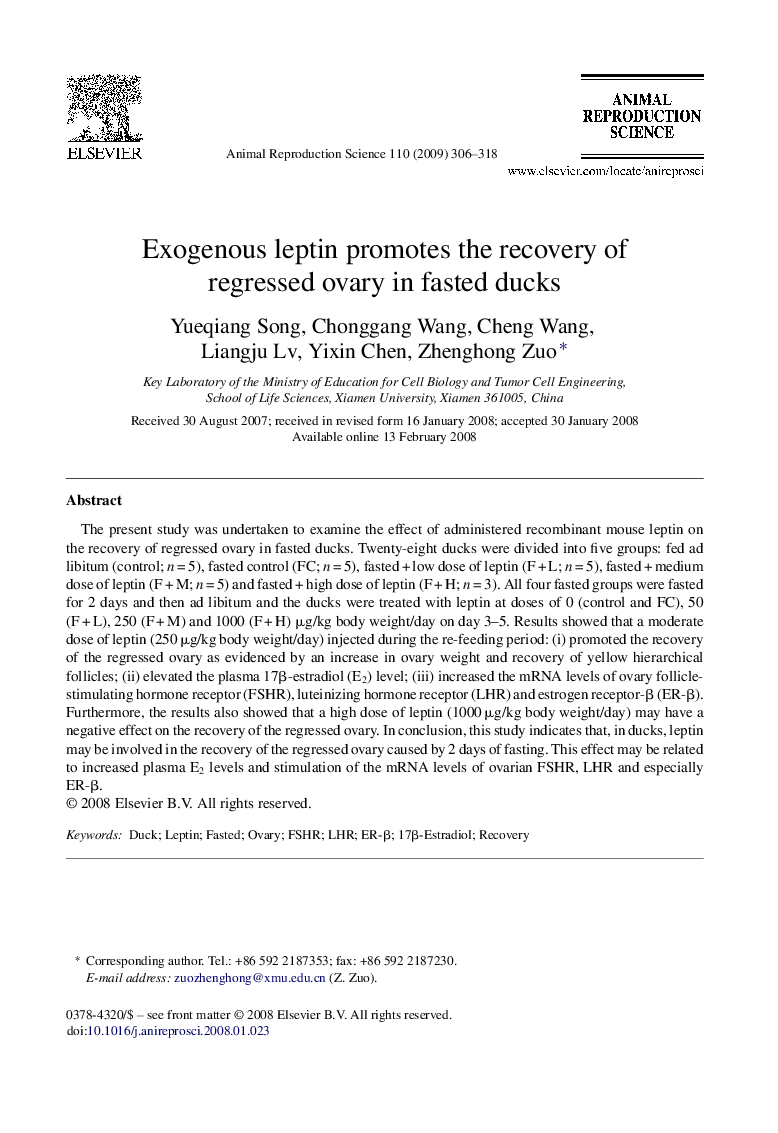| Article ID | Journal | Published Year | Pages | File Type |
|---|---|---|---|---|
| 2074187 | Animal Reproduction Science | 2009 | 13 Pages |
The present study was undertaken to examine the effect of administered recombinant mouse leptin on the recovery of regressed ovary in fasted ducks. Twenty-eight ducks were divided into five groups: fed ad libitum (control; n = 5), fasted control (FC; n = 5), fasted + low dose of leptin (F + L; n = 5), fasted + medium dose of leptin (F + M; n = 5) and fasted + high dose of leptin (F + H; n = 3). All four fasted groups were fasted for 2 days and then ad libitum and the ducks were treated with leptin at doses of 0 (control and FC), 50 (F + L), 250 (F + M) and 1000 (F + H) μg/kg body weight/day on day 3–5. Results showed that a moderate dose of leptin (250 μg/kg body weight/day) injected during the re-feeding period: (i) promoted the recovery of the regressed ovary as evidenced by an increase in ovary weight and recovery of yellow hierarchical follicles; (ii) elevated the plasma 17β-estradiol (E2) level; (iii) increased the mRNA levels of ovary follicle-stimulating hormone receptor (FSHR), luteinizing hormone receptor (LHR) and estrogen receptor-β (ER-β). Furthermore, the results also showed that a high dose of leptin (1000 μg/kg body weight/day) may have a negative effect on the recovery of the regressed ovary. In conclusion, this study indicates that, in ducks, leptin may be involved in the recovery of the regressed ovary caused by 2 days of fasting. This effect may be related to increased plasma E2 levels and stimulation of the mRNA levels of ovarian FSHR, LHR and especially ER-β.
